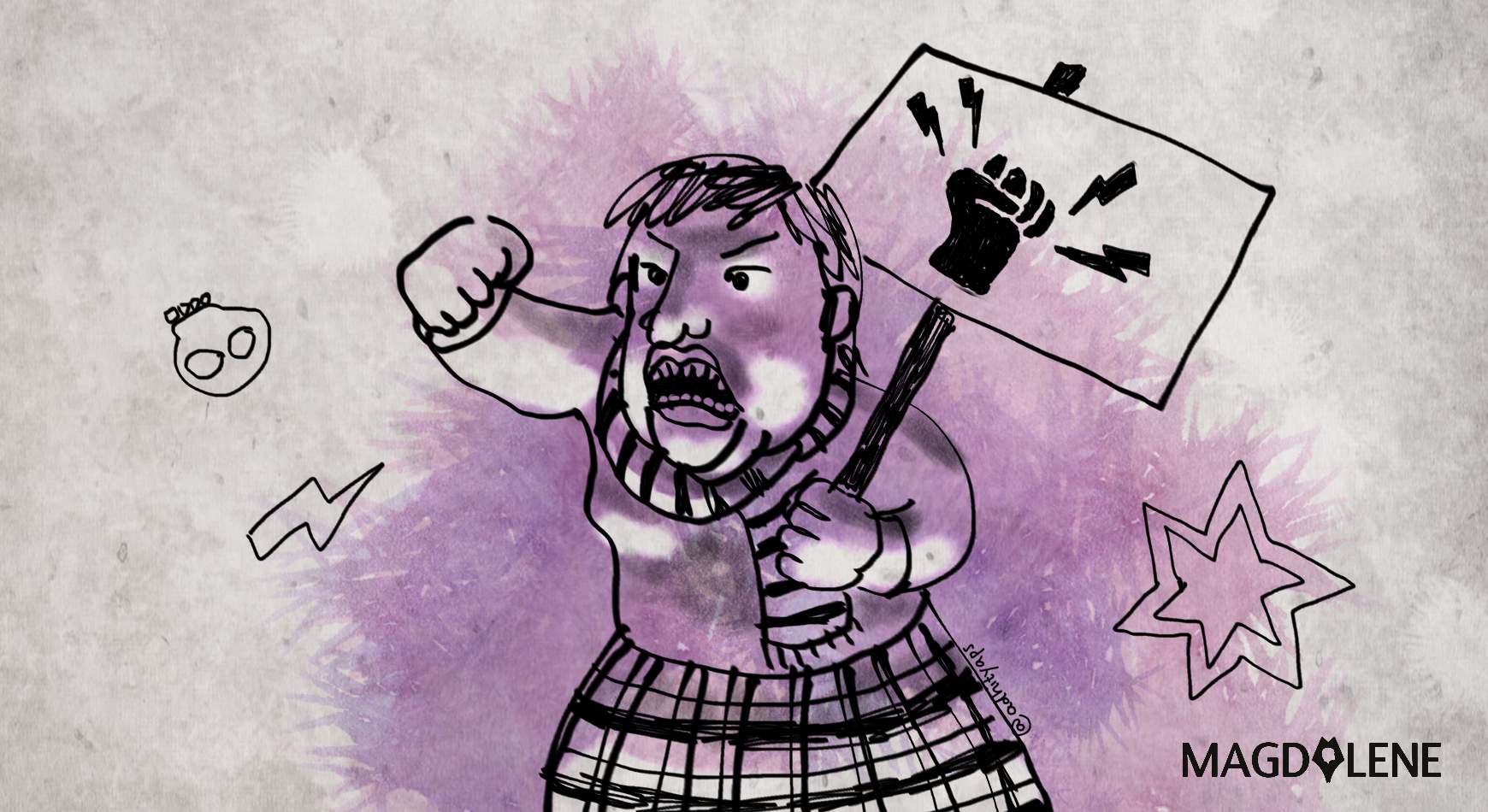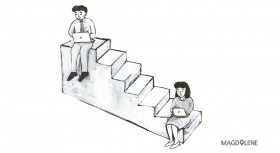However, despite its real-time and factual effectiveness as one of the ways to prevent violence against women, many feminists believe self-defense is not a solution, and even call it a problem.
A few years back, Miss Nevada faced media backlash after saying young women in campus should learn martial arts to defend themselves against potential attackers. Many feminists who are against the idea argued that self-defense is a “shallow solution” that doesn’t address the real problems, namely the patriarchal system.
Of course, we should not expect teaching martial arts to all women in the world to solve all kinds of gender-based violence. However, self-defense can function as one of the “risk reduction” attempts that gives women a practical ability to overcome an urgent, unexpected situation. By self-defense attempts here, I’m not referring to suggestions that forbid women to wear certain clothes or give women a certain curfew. I refer to any kinds of self-defense attempts that empower women instead of limiting their space, including physical and verbal self-defense, as well as risk reduction methods or techniques.
And, yes, while dismantling the patriarchy is still the main agenda, it’s not something we can do in a short period of time. Meanwhile, we have the urgent need to empower women to protect themselves. We should be able to identify what we can do as an immediate, urgent response, and what we can do for long-term goal prevention. If anything, we can all agree that both are necessary.
Some feminists strongly believe that teaching self-defense to women will only strengthen rape culture because then people would all demand women to be able to protect themselves.
However, I found the argument that says self-defense only enforces rape culture disempowering. It means that the feminists only place women in one spectrum, as a victim—and victim is all we will and should aspire to be. It denies the possibility of surviving, and it sure is a terrible way to stereotype women. Besides that, a study also shows that women who were raped but resisted physically would actually blame themselves less in the aftermath of the assault than those who didn’t. It proves that self-defense can be one of the ways to build agency among women in the case of sexual violence. And thus, it gives a better sense of self and an opportunity for women to claim their power back.
Yes, rape culture is a problem we should always address, but it doesn’t mean we have to dismiss stories of survivors, who were actually able to avoid rape or other violence. It’s important that we learn from all experiences, because, again, self-defense is not a one-dimensional solution to the problem. It’s one part of all the “steps” to actualize a safe space for everybody.
Moreover, talking within the Indonesian contexts where perpetrators are often not only simply strangers but also family members, we desperately need self-defense trainings for that specific case prevention, such as how to recognize signs of abuse. We cannot simply expect protection from the laws after bad things already have happened. Prevention and risk reduction attempts are equally important.
The third argument against self-defense for women is that women should not be the ones doing all the work.
This assumption implied that “men” are the sole cause of the problems, so it has to be men’s responsibility to get rid of the problem entirely.
I have to point out that the problem lies deeper and more complex and requires more than “teaching men not to rape”. Gender-based violence entangled in multiple layers of problems, including the patriarchal systems, local social values and norms, as well as beliefs and attitudes.
We cannot oversimplify the overall situations by just putting all the blame on one of the genders. We cannot prolong the belief that women are weak and, thus, easy preys of sexual predators, while men are physically strong so they are more likely to be THE sexual predators. Many cases have proved that women can also be part of the problem, while men also possibly become one of the solutions. Hence, solving sexual violence problems should involve all parts of the society, and it stretches to more complex issues beyond “which gender is more responsible” to solve it. Meanwhile, we still need to protect ourselves.
Read Ayunda’s review of the movie It.









Comments